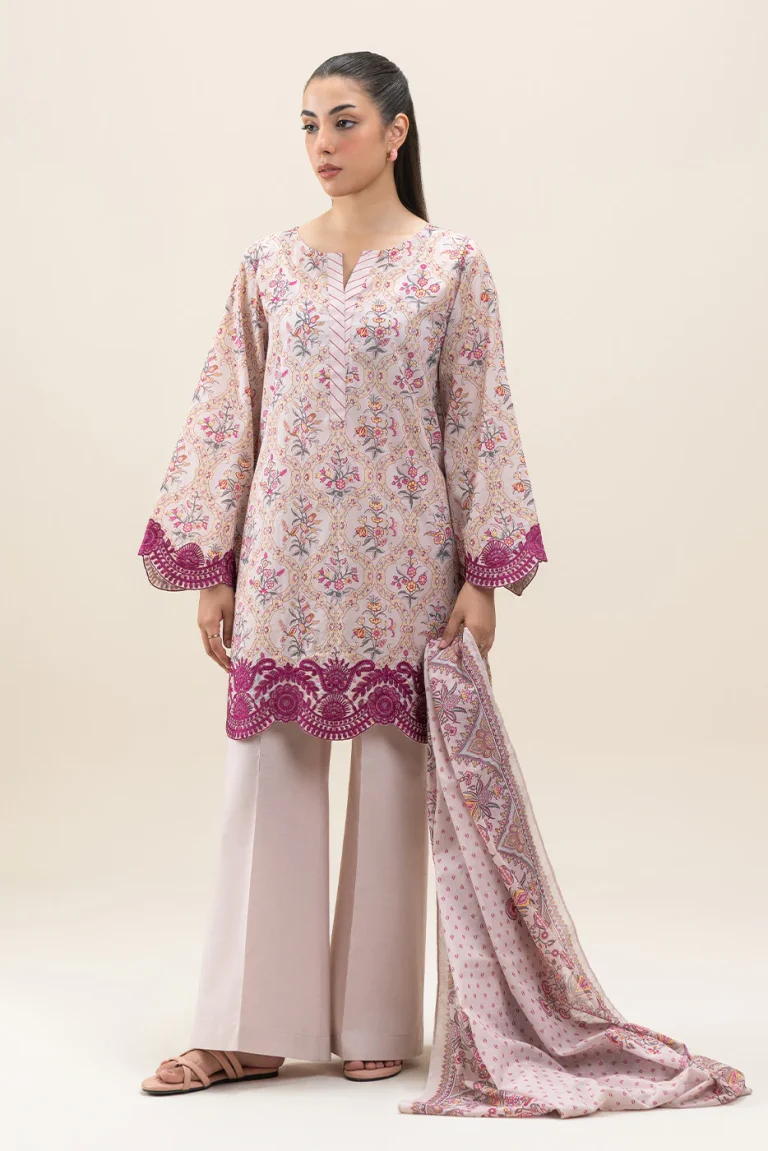Pakistan’s fashion industry has gained global recognition for its unique blend of traditional craftsmanship and contemporary designs. Pakistani clothing brands cater to diverse tastes, ranging from luxury formal wear to affordable casual outfits. Among the most prominent names are Asim Jofa and beechtree, both of which have carved a niche for themselves in the fashion world. This article explores the history, signature styles, and market influence of these brands, along with other notable Pakistani fashion labels.
1. Asim Jofa: The Epitome of Luxury and Elegance
1.1 Brand Overview
Asim Jofa is a high-end Pakistani fashion brand known for its luxurious fabrics, intricate embellishments, and sophisticated designs. Founded by Asim Jofa, a former gemstone merchant turned fashion designer, the brand has become synonymous with opulence and grandeur.
1.2 Signature Style
-
Bridal & Formal Wear: Asim Jofa specializes in bridal lehengas, evening gowns, and formal suits adorned with Swarovski crystals, pearls, and detailed embroidery.
-
Prints & Patterns: The brand is famous for its signature floral motifs and Mughal-inspired designs.
-
Fabric Selection: Premium materials such as silk, chiffon, and organza are used to create flowing, elegant silhouettes.
1.3 Market Influence
Asim Jofa has a strong presence in Pakistan’s elite fashion circles and has expanded internationally with outlets in the UAE, UK, and the USA. The brand frequently showcases its collections at Fashion Pakistan Week and PFDC Sunsilk Fashion Week, solidifying its reputation as a top luxury brand.
1.4 Celebrity Endorsements
Many Pakistani celebrities, including Mahira Khan, Mawra Hocane, and Sajal Aly, have worn Asim Jofa’s designs for red-carpet events and weddings.
2. Beechtree: Affordable Fashion with a Contemporary Twist
2.1 Brand Overview
Beechtree is a popular Pakistani brand that offers trendy, budget-friendly clothing for women. Known for its casual and semi-formal wear, Beechtree has gained a loyal customer base due to its stylish yet affordable collections.
2.2 Signature Style
-
Everyday Wear: Beechtree focuses on comfortable, wearable fashion, including kurtis, palazzo pants, and summer dresses.
-
Prints & Colors: The brand experiments with bold prints, pastel shades, and floral patterns, appealing to younger demographics.
-
Affordable Luxury: Beechtree provides high-quality fabrics at reasonable prices, making fashion accessible to the masses.
2.3 Market Influence
With numerous outlets across Pakistan and a strong online presence, Beechtree has become a go-to brand for middle-class consumers. The brand frequently updates its collections to align with seasonal trends, ensuring customer retention.
2.4 Social Media Presence
Beechtree leverages Instagram and Facebook to engage with customers, offering online sales and promotions that further boost its popularity.
3. Other Leading Pakistani Clothing Brands
While Asim Jofa and Beechtree dominate their respective market segments, several other brands contribute to Pakistan’s thriving fashion industry:
3.1 Khaadi – The Pioneer of Pret Wear
-
Known for its handwoven fabrics and fusion wear.
-
Offers a mix of traditional and modern designs.
-
Popular for its unstitched fabric collections and ready-to-wear lines.
3.2 Sana Safinaz – Timeless Elegance
-
A luxury brand specializing in bridal and formal wear.
-
Famous for its minimalist yet chic designs.
-
Frequently featured in fashion weeks.
3.3 Gul Ahmed – The Fabric Giant
-
One of Pakistan’s oldest textile brands.
-
Offers a wide range of unstitched and stitched clothing.
-
Known for quality prints and durability.
3.4 Maria B – The Queen of Couture
-
A high-end brand with a focus on bridal and festive wear.
-
Signature styles include flowing silhouettes and bold colors.
-
Popular among celebrities and socialites.
3.5 Nishat Linen – Affordable Chic
-
A subsidiary of Nishat Group, offering budget-friendly fashion.
-
Known for linen suits, summer wear, and casual outfits.
4. The Evolution of Pakistani Fashion Industry
4.1 Traditional Roots
Pakistani fashion draws inspiration from Mughal artistry, regional embroidery (such as Sindhi and Balochi stitches), and traditional fabrics like khaddar and lawn.
4.2 Modern Adaptations
Contemporary brands are blending Western cuts with Eastern embellishments, creating fusion wear that appeals to global audiences.
4.3 Global Recognition
Pakistani designers are gaining international acclaim, with brands like Elan, HSY, and Faraz Manan showcasing at global fashion events.

